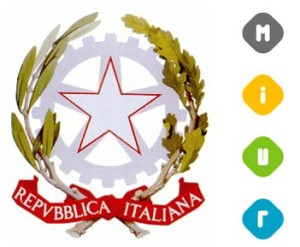Evaluating Quality of Financial Reports

Companies that manipulate their earnings are said to have poor or low earnings quality. All the information in the financial statements must be provided within the relevant span of time. The disclosures must not be delayed so that, while making their economic decisions, the users of these statements possess all the relevant and up-to-date knowledge. Although this characteristic may require more resources, it is still vital, as delayed information makes any corrective actions irrelevant. The financial statements must be prepared in such a way that they are comparable with prior years’ financial statements. This characteristic of financial statements is very important to maintain, as it makes sure that the performance of the company can be monitored and compared.
- Generally Accepted Accounting Principles (GAAP) or IFRS—from revenue recognition to impairments to fair value determinations.
- The quality of financial statements is enhanced by comparability, verifiability, timeliness, and understandability.
- Health care is an unusual business model as the pricing for services is negotiated with insurance companies or dictated by governmental entities.
- Further, high-quality reporting captures a company’s financial condition at the end of the reporting period.
The effects of the European debt crisis on earnings quality
Investors should start by learning how to interpret key figures on a company’s balance sheet, income statement, and statement of cash flows. Those wanting to dig a little deeper may want to consider learning how to analyze reports, such as shareholder’s equity and retained earnings. Investors can find a publicly traded company’s financial statements in its annual report or a 10-K filed with the SEC. Knowing how to work with the numbers in a company’s financial statements is an essential skill for stock investors.
Accounting: Art, Not Science
For health care leaders, analyzing this statement is crucial as it reflects the institution’s ability to meet its short-term and long-term obligations. Let me now turn to the importance of standard setters to high-quality, reliable financial reporting. In a fundamental sense, good financial reporting cannot occur without strong, first-rate accounting standards established by independent standard setters. The quality and value of financial reporting would be seriously diminished if based on—and audited against—subpar accounting standards.
Financial Reporting Quality
As the quality of reporting increases, the ability of users of financial statements to correctly assess earnings quality and subsequently develop future performance expectations will most likely also increase. During the recent stock market bubble, the traditional financial reporting model was assailed as a backward looking system, out of date in the Information Age. With the bursting of the bubble, the quality of financial reporting is again under scrutiny, but now for not adhering to traditional principles of sound earnings measurement, asset and liability recognition. This paper is a retrospective on the quality of financial reporting during the 1990s. My premise is that financial reporting should serve as an anchor during bubbles, to check speculative beliefs.
Much of the annual report is based on the 10-K, but contains less information and is presented in a marketable document intended for an audience of shareholders. Securities and Exchange Commission or SEC and tends to contain more details than other reports. When financial reporting quality is low, valuations and assessment earnings quality are compromised. Consequently, the information provided will not be useful in the assessment of a company’s performance.
References to ‘sales’ throughout this announcement are statutory revenue plus the gross value of consignment sales ex. This post is based on Chair White’s recent Keynote Address at the 2015 AICPA National Conference; the full text, including footnotes, is available here. The views expressed in this post are those of Chair White and do not necessarily reflect those of the Securities and Exchange antique silver bracket wallet with beaded bag and antique Commission, the other Commissioners, or the Staff. Verifiability helps to assure users that information represents faithfully what it purports to represent. Financial information is supported by evidence and independent individuals can check them to see whether such information is faithfully represented. Information is material if it is significant enough to influence the decision of users.

Second, standard metrics often don’t capture the true value of companies, especially for innovative firms in new markets. And third, executives continue to face strong incentives to manipulate the numbers. With Clothing in growth and strong online performance, we are clear that now is the time to seize the opportunity in other categories including Home and Beauty. Across Clothing & Home online, we need to accelerate our transformation and reimagine our proposition. Under new leadership, we’ve now got a grip on our digital and technology infrastructure, as progress to date has been slower than we would have liked, so we must accelerate delivery.
At this conference last year, Jim Schnurr discussed the possibility of allowing domestic issuers to provide IFRS-based information as a supplement to GAAP financial statements without requiring reconciliation. This proposal has the potential to be a useful next step, and the staff has now developed a recommendation for the Commission’s consideration, which staff will be discussing with all of the Commissioners so that we can determine the path forward. Audit committees must also take seriously their reporting to shareholders, a critical responsibility on which the SEC is closely focused. Deputy Chief Accountant Brian Croteau will discuss the responses we have received on the concept release we issued in July on possible revisions to audit committee disclosure requirements. Typically, the word “consolidated” appears in the title of a financial statement, as in a consolidated balance sheet.






















